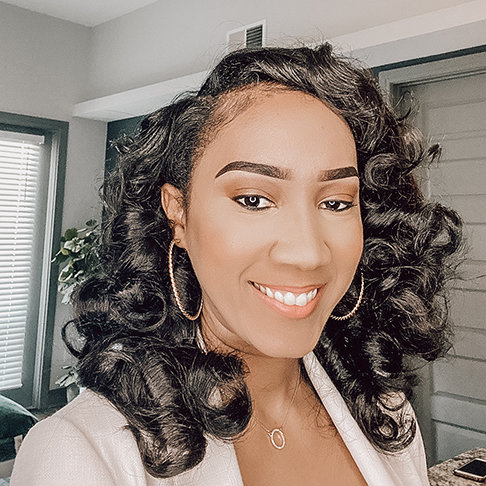
If you’ve ever felt like a fraud, like you don’t belong in the room, or like you just “got lucky,” and it’s only a matter of time before someone finds out you’re not really qualified, you’re not alone. These thoughts can be painful, disorienting, and downright exhausting. And yet, they are incredibly common, especially among women who are deeply driven and committed to living a meaningful life.
What you’re feeling has a name: imposter syndrome. It’s that internal voice that whispers, “You’re not enough,” even when the evidence says otherwise. It often shows up right when you’re stretching, growing, or stepping into your purpose. The very moment you decide to dream bigger is usually the moment self-doubt gets louder.
But hear this: just because that voice is present doesn’t mean it’s telling the truth. Recognizing imposter syndrome for what it is is the first courageous step toward building a more compassionate inner dialogue, one that supports your growth and guides you closer to the life you’re meant to live.
So, let’s dive in.
Imposter syndrome is the persistent feeling of inadequacy despite evident success. You may find yourself discounting your achievements, attributing them to luck, timing, or the help of others.
It sounds like:
For purpose-driven women, imposter syndrome can be especially tricky. Because you care deeply, you set high standards. Because you long to make an impact, you second-guess your worthiness to lead.
It often shows up when you’re preparing to take a leap: start a business, launch a project, change careers, or share your story.
But just because that voice is loud, doesn’t mean it should control your life. So, let’s explore the causes of imposter syndrome and how we can overcome them.
Many of us were raised to believe we have to earn our worth or shrink ourselves to be accepted. We’re taught to be humble, not “too confident,” and to wait for permission. This conditioning makes it harder to own our brilliance without guilt or fear.
Imposter syndrome often thrives where perfectionism lives. If you feel like you need to do everything flawlessly or please everyone around you, any slip-up can feel like “proof” that you’re not good enough.
Social media has made it easier than ever to compare ourselves to someone else’s highlight reel. When everyone else looks like they have it all figured out, your behind-the-scenes struggles can feel shameful, even when they’re completely normal.
If you rarely see people who look like you doing what you dream of doing, it’s easy to feel like an outsider. Being the “first” or the “only” in a space can be both empowering and intimidating at the same time.
The first step to overcoming imposter syndrome is to acknowledge it. When that inner voice starts to criticize or doubt you, pause and name it: “Ah, that’s imposter syndrome talking.”
Separating yourself from the thought gives you the power to choose how you respond.
Don’t wait for the big milestones to feel proud of yourself. Every step counts, and every win matters. So, celebrate all your wins.
Additionally, keep a “confidence journal” where you jot down compliments, successes, and moments when you feel brave. Over time, this builds evidence of your brilliance and is great to look back on to see how far you’ve come.
Fear doesn’t always mean stop. Sometimes, it’s a sign you’re stretching into new territory. Instead of thinking, “I’m not ready,” try asking, “What if this is exactly the right time for me to grow?”
Talking back to your inner critic might feel strange at first, but it’s a powerful act of self-love. I do it often. That voice can get loud, but I’ve learned it’s not the truth. When it pipes up, I meet it with compassion and say: “I may not know everything, but I’m capable, curious, and willing to learn.”
So, the next time your inner critic tries to run the show, pause and respond with kindness. Replace those harsh thoughts with affirmations that uplift, empower, and remind you who you really are.
💛 If you need a bit more guidance in this area, check out our post: 6 Ways to Stop Negative Self-Talk.
Purpose gives fear a reason to sit down. When imposter syndrome creeps in, reconnect with why you started. Who are you here to help? What difference do you want to make? Your “why” is always stronger than your fear.
Recently, I posted my first video of myself speaking on camera for an Instagram Reel. I was so nervous. Thoughts spiraled: What if they don’t like what I have to say? What if I mess up? But then I asked myself: what if what I say actually helps someone? Even just one person. Even just for a moment.
So, I gathered all the courage I could find and hit record. And you know what? A few people liked it. Some even left kind comments. Nothing huge happened; the world didn’t end (lol), but something shifted inside me. I felt proud. I felt growth. Because for a long time, I believed I wasn’t enough. But at that moment, I held onto my “why,” reminded myself that I am more than enough, and realized that the people I’m meant to serve won’t be able to find me if I don’t show up.
So today, ask yourself:
💛 If you need help with uncovering your “why”, check out our post: How to Find Your Purpose and Bring it to Life.
Find mentors, friends, or communities who believe in you, even when you forget how to believe in yourself. Let others remind you of your magic. You don’t have to do this alone. It truly does take a “village”.
If you’re waiting until you feel confident, you may be waiting a long time. Confidence is a result of action, not a prerequisite for it. Show up scared. Show up imperfect. Just show up. The more you do, the more you’ll see that it wasn’t so bad after all. And the more you do, the more you’ll learn. With the experience gained through trial and error, your confidence will begin to grow.
Imposter syndrome can be loud, but your truth, your worth, and your story are so much more important and needed. You don’t need to be perfect. You don’t need to have all the answers. You just need to be willing to take the next brave step.
Reflection: How is imposter syndrome holding me back from the life I truly want? What would I be doing if I believed I was already enough?
Affirmation: I am not an imposter. I am a woman on purpose, becoming more of who I truly am every day.
You are worthy of the dream in your heart. Now go live like it.
With love,
— Val 🌸
P.S. Want more self-discovery and personal growth tips? Sign up for our newsletter below.



